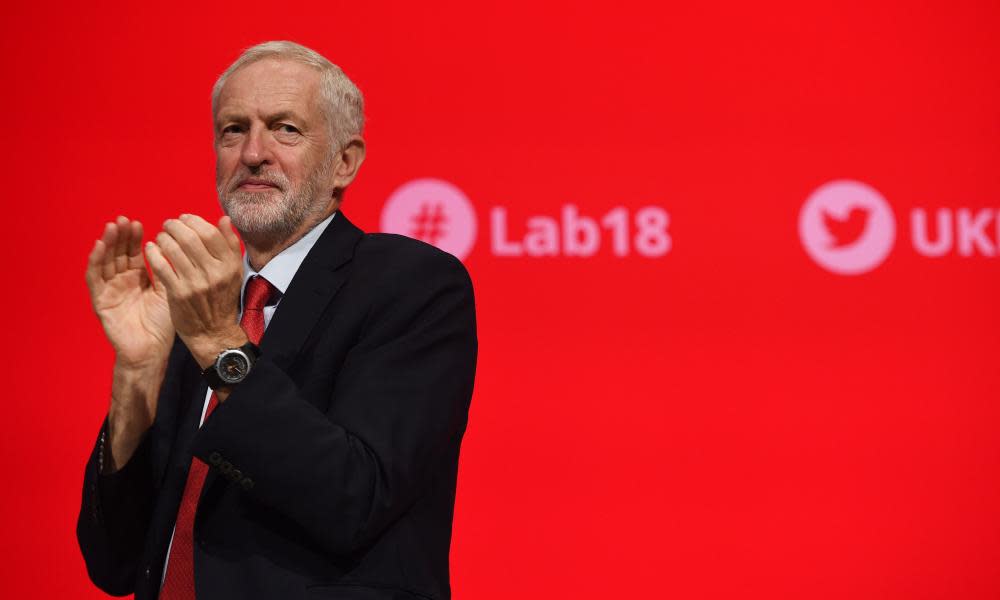Labour’s proud history is crying out for rejuvenation

John Harris’s stimulating piece (Can Labour forge a new 21st-century socialism?, 24 September) contained a dangerous proposal: to devolve social security powers to “the most local level possible”. Does he mean that social security benefit rates and regulations would be decided at this level? If so, this would undermine social security’s status as a human right, which provides protection regardless of where citizens live within a country, turning it into a “postcode lottery”.
The precedent of devolution of parts of the social fund to local welfare assistance schemes in England – either cut back or abolished completely in many hard-pressed local authorities – does not augur well. The “authoritarian and hateful” elements of the current benefits system are due not to its centralised nature but to punitive policies, which could just as well be applied by some local authorities, with less chance of legal redress. Yes, such a policy would mean leaving the 20th century – for the 19th century or even earlier, with shades of the poor law. The priority for the 21st century should be a decent social security scheme that provides genuine security and respects the rights and dignity of all.
Ruth Lister
Labour, House of Lords
• In John Harris’s analysis of a new way forward for Labour, he rightly states “there is no meaningful discussion of the stupid voting system that renders millions of us powerless”. Perhaps they could review their current strapline – “For the many not the few” – a strategy that has people from a spectrum of minority groups concerned as to what would happen to the rest of us under a new Labour regime. Maybe take a fresh look at proportional representation, reflecting a government “for the many as well as the few”, so we could all have a say in creating a more inclusive and fairer future in this country.
Ya’ir Klein
London
• John Harris asks good questions of Labour but provides few suggestions. Calling for PR has merits but is hardly new, and relocating civil service functions around the country already has a long record of success.
Harris’s most urgent question though is how to grapple with the iniquities of the “Amazon age”. The answer is to mobilise a blend of Labour policy old and new. Revitalising the minimum wage to equalise for all ages, restoring tax credits to working families and abolishing means testing for child benefit – all pillars of Labour’s proud history crying out for rejuvenation after years of swingeing Tory cuts.
Couple this with new ideas from John McDonnell and his team to democratise corporate governance, share profits, extend rights to all workers and foster collaborative and regional enterprise with genuine help from an active government, all previously highlighted by Gaby Hinsliff in these pages (Labour is finally back in the real world – and taking on the gig economy, 11 September), and you have an exciting programme of renewal.
We all, including John Harris, will hear more answers this week. Time in opposition, while unwanted, has allowed Labour breathing space to define how to use elected power to energise the nation in ways that Conservative self-help orthodoxy does not allow. In all the gloom of these times, Labour stands ready to prove that there are grounds for hope, and that politicians don’t cry in Liverpool.
Nick Mayer
Southampton, Hampshire
• John Harris is surely right in arguing that the Labour party needs to get its collective head around the changes that are happening in the economy and society, and move away from the statist attitudes of the 50s and 60s. However, the biggest threat facing Labour internally at the moment is the rise of a new and quite vicious authoritarianism within its ranks.
There is a deep irony in the idea of democracy being promoted by those who would seek to exclude those with whom they disagree. Diversity of opinion is certainly not on the agenda as evidenced by the recent NEC elections where a clean sweep for the JC9 slate is presented as somehow representative of the range of opinion within the party, where winning the vote is seen as the same as winning the argument. The same cluster of left authoritarians is now busy promoting the cause of automatic deselection of MPs and councillors, which will give them the chance to impose their candidates on the electorate locally. Whether electors will appreciate the donation remains to be seen.
Roy Boffy
Sutton Coldfield, West Midlands
• I don’t see how it is possible to talk about democracy in the Labour party, without taking into account the bigger picture of democracy in the UK. It should be possible for everyone, wherever they live, to have a meaningful vote for the party of their choice. For example, in our constituency voting for Labour only makes it more likely that the Conservative candidate gets elected. There would also be no need for primaries if the voters can choose from a list of candidates of each party. Rainbow democracy!
Marianne Gemmeke
Eastleigh, Hampshire
• John Harris asks if Labour can forge a new 21st-century socialism? Unfortunately, the Labour leadership remains wedded to a 19th-century version of socialism; dependent on capitalists to maintain the value of money, while a Labour government taxes and spends to address its political ambitions. Labour still has no idea how to maintain the value of money in a socialist economy, and therefore remains dependent on a capitalist economy it seeks to replace.
Martin London
Henllan, Denbighshire
• Join the debate – email guardian.letters@theguardian.com
• Read more Guardian letters – click here to visit gu.com/letters
• Do you have a photo you’d like to share with Guardian readers? Click here to upload it and we’ll publish the best submissions in the letters spread of our print edition

 Yahoo News
Yahoo News 
